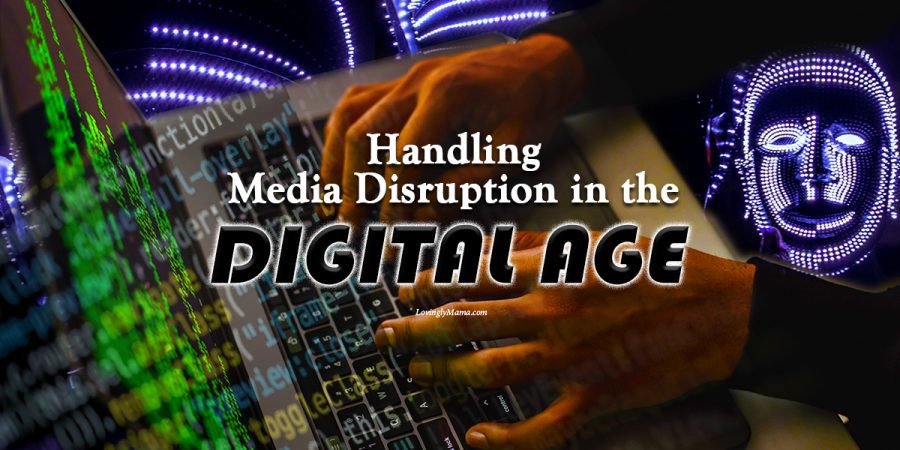Much like first-time parents who are not formally educated about pregnancy and child-rearing, the internet and its use came without a manual. Instead, like young kids who were brought to the amusement park for the first time, we embraced the wonders of technology and the plethora of information that the world wide web offers with childlike innocence. Gone are the days of the simple media trifecta: print, radio, and TV. We now have the universe at our fingertips. Technology itself is challenging enough, from gadgets to connectivity, especially for the older set of journalists. But navigating through the new and open cultures of the web, including its vast opportunities and real dangers, is like stepping out into the excitement as well as the darkness of different multiverses. How does a journalist, especially one who is not a digital native, handle media disruption in the digital age easily and safely?
Note: All official photos were taken from the PPI Facebook page.
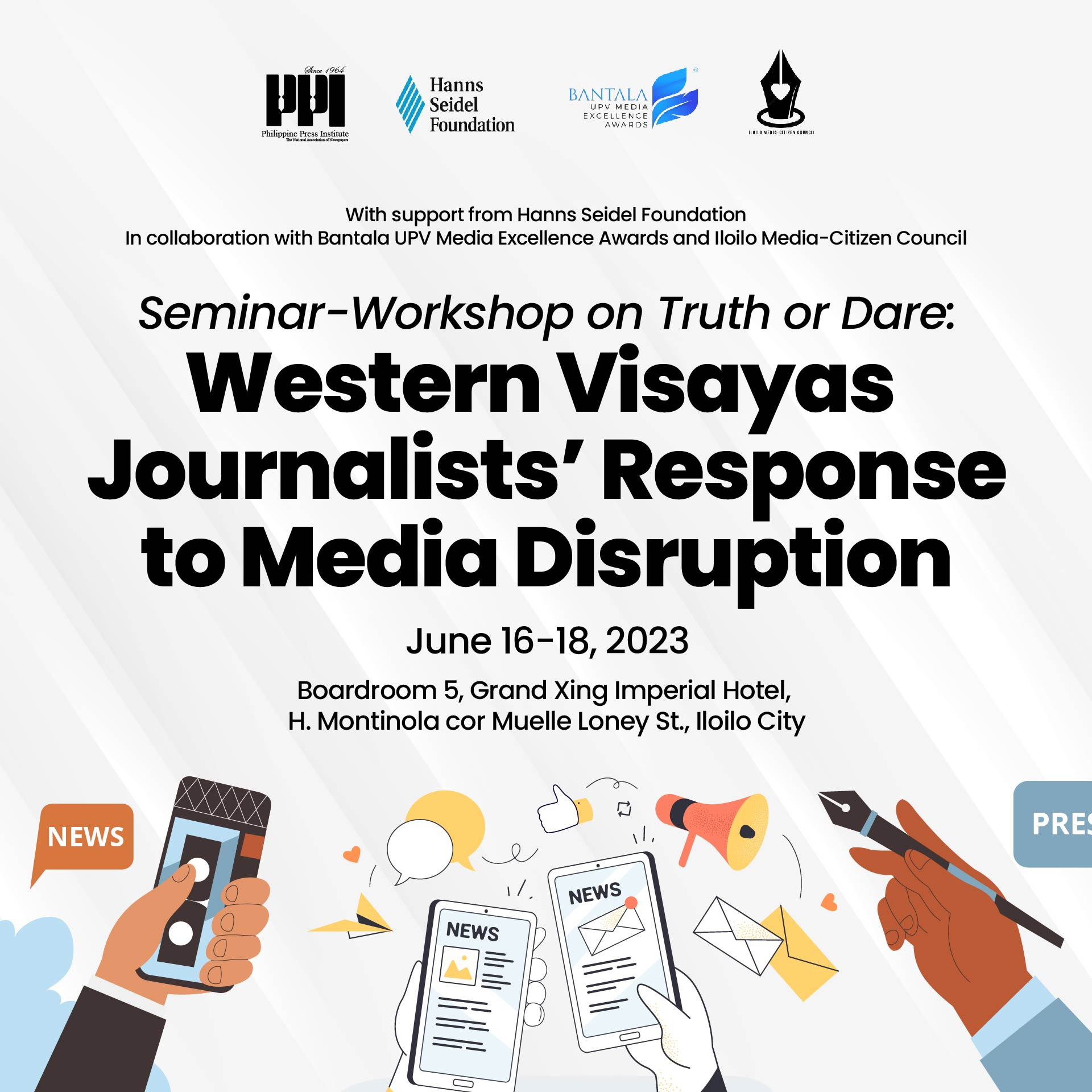
The First-Ever Seminar-Workshop for Journalists and Content Creators on Media Disruption in the Digital Age
While the more senior journalists are still scrambling to get a grip on trending social avenues to share their news, we are now faced with a new technology with the greatest potential to become an in-depth resource or a tool with a far too dangerous magnitude: AI (artificial intelligence).
This and other pertinent issues were discussed by a select number of media practitioners gathered from around Western Visayas, Philippines. From June 16 to 18, 2023, a total of 25 journalists from the tri-media, as well as bloggers and content creators, and select members of the academe covering Iloilo, Bacolod and Negros Occidental, Aklan, and Capiz, holed up in a boardroom at the Grand Xing Imperial Hotel in Iloilo City for the Truth of Dare: Western Visayas Journalist’s Response to Media Disruption.

Organized by the Philippine Press Institute, in cooperation with the Bantala-UP Visayas Media Excellence Awards and the Iloilo Media-Citizen Council, with the full support of Hanns Seidel Foundation-Philippines, the event opened with a welcome message Dr. Clement Camposano, Chancellor of UP Visayas. Dr. Camposano said that technology has transformed the way that society defines as well as perceives news. Hence, he fully supports the endeavor as there is a need to address the modern-day media disruption in the digital age.
People’s Cue
This was followed by an introduction to the Western Visayas media landscape given by Dr. Zoilo Andrada, UP-Visayas Project Development Assistant for Mass Media and Communication. He acknowledged that “the incorporation of digital technologies in the journalistic and editorial operations of print and broadcast media on the other hand is attributed to newly formed activities of media consumers specifically the emergence of new sets of audiences that obtain news information online.”
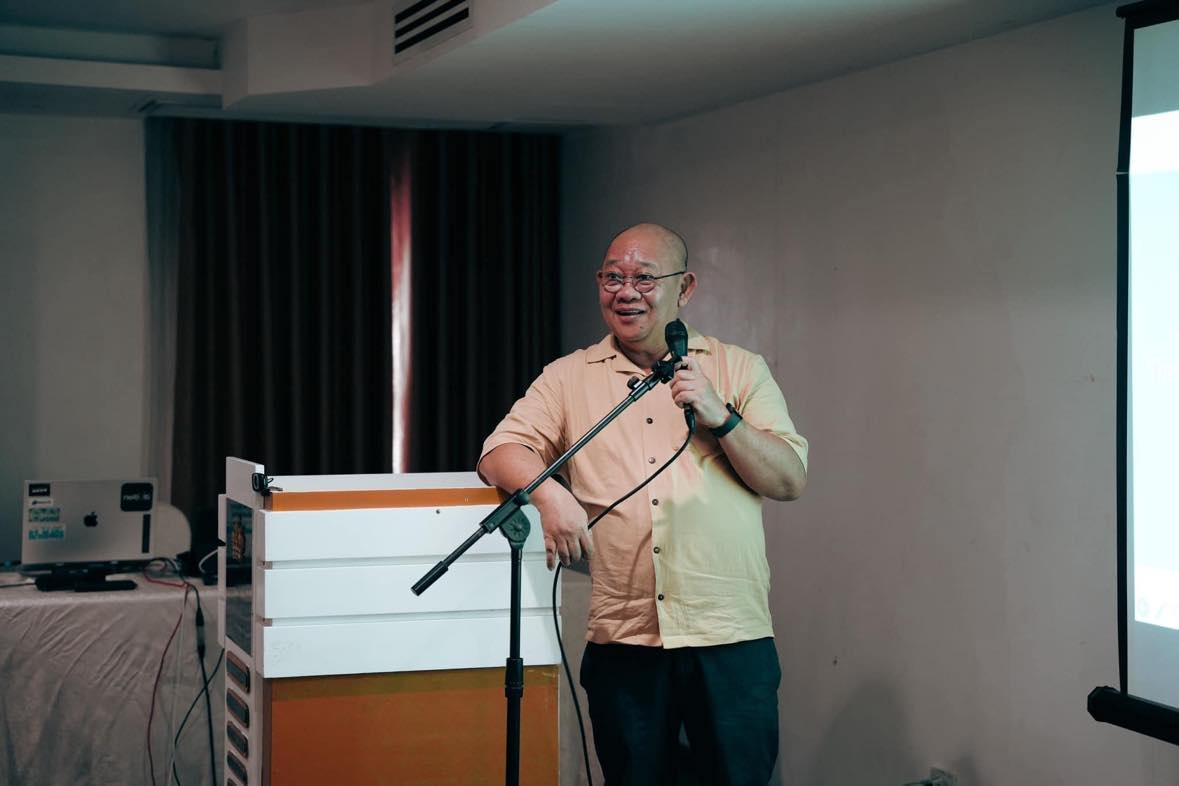
Dr. Andrada cited the study by Concha and Soler in 20121 about the impact of online advertising on newspapers. It was found that the “advent of online advertising was viewed by numerous Philippines newspapers as a cue to venture into the online sphere.” Hence, it is safe to say that consumer behavior is responsible for the drastic shift to building online news portals and for news outlets to have their own social media channels. It is not the other way around.
Problems Caused by the Proliferation of Social Media Use
The shift to or the addition of digital news reporting made journalism prone to catastrophic vulnerabilities. The credibility of citizen “reporters” is no longer checked, as anyone can already make reports online, which can be carelessly shared by the general public without proper verification. While Ms. Joyce Babe Panares, PPI Seminar Director and Manila Standard writer, acknowledged the value of citizen reporting, it is not without risks. This is especially true if such information and the responsibility of reporting it will land in the hands of people who are just out to make their posts “viral” for whatever reasons they have.
Another problem is the validity of the information as well as the credibility of the sources. There is no longer any control over every news bit released in the information superhighway, Dr. Andrada stresses. While freedom of speech is one of the pillars of democracy, it is also opening the news bureau to abuses, such as the proliferation of fake news.
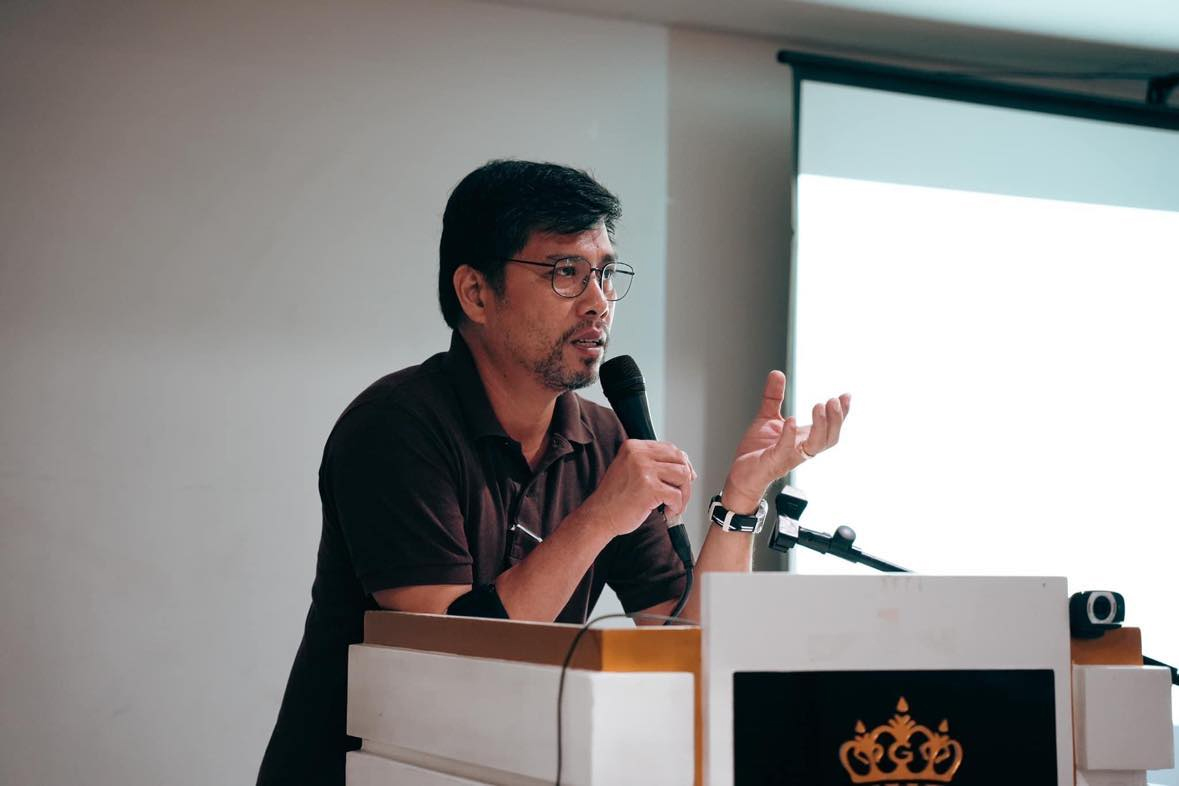
Mr. Francis Allen Angelo, PPI Trustee and editor-in-chief of the Daily Guardian, talked about news reporting trends, including how “journalism is being turned on its head”. He pointed out from the Reuters Digital News Report 20232 that for a while now, Facebook has been the “king” in terms of being the source of news.
However, it is slowly being dethroned by video formats presented on YouTube and more recently, Tiktok, which appeals primarily to the interest and short attention span of a much younger audience. The report was derived from a survey that included 93,000 online news consumers in 46 markets, which represents half of the world’s population.
In Tiktok, social media influencers and celebrities have become the sources of news and their opinion matters more to their followers than those of seasoned journalists.

Lectures
The meat of the seminar was composed of lectures on three important issues that journalists face today: fact-checking, digital hygiene and cybersecurity, and social media.
Fact-Checking: A Necessity to Fight Disinformation
To say that fake news is very rampant nowadays is an understatement. Real photos can be manipulated through photo-editing software while new photos can be generated using AI. When used by the wrong people or organizations, a simple manipulated image can bring down world leaders, crash the economy, or even lead to wars.
Ms. Joyce Babe Pañares of Manila Standard and Seminar Director, Philippine Press Institute, stressed the role of fact-checking in journalism. While regular consumers of information can easily fall prey to false information, this is lethal for journalists whose entire profession rests on much on the facts they report.

This is especially true when journalists catch wind of viral stories or interesting photos and report them. Before reporting them as news, these data should be verified and cross-referenced through different tools, especially now that AI can generate even close to realistic photos of different situations. It is no wonder that people’s trust in the Philippines’ news media outlets is very low.
An online survey3 of approximately 2,000 people ages 18 years old and above revealed that only 38% of Filipino respondents said that they trust the information released by news media. Journalists should work harder together in order to fight disinformation in our society.
Good Digital Hygiene and Cybersecurity Habits
Ms. Len Olea, Secretary General of the National Union of Journalists of the Philippines (NUJP) and Editor-in-Chief of Bulatlat, tackled cybersecurity habits and good digital hygiene. Much like everyone else using the internet, journalists are exposed to threats like malware, hacking, phishing, and the like. But the stakes are higher with journalists because of the sensitive information that might get exposed should there be a data breach that could affect the whole newsroom.
Ms. Olea shared some tools to cleanse and then protect gadgets as well as social media accounts, including two-factor authentication for all accounts.
Getting Social on Social Media
UPV Chancellor Dr. Camposano said during his welcome message that digital technology has the capacity “to shift the way you think or the way you communicate to people.” With this introduction, the last lecture on using social media for news reporting by Ms. Jacque Manabat of ABS-CBN was on point.
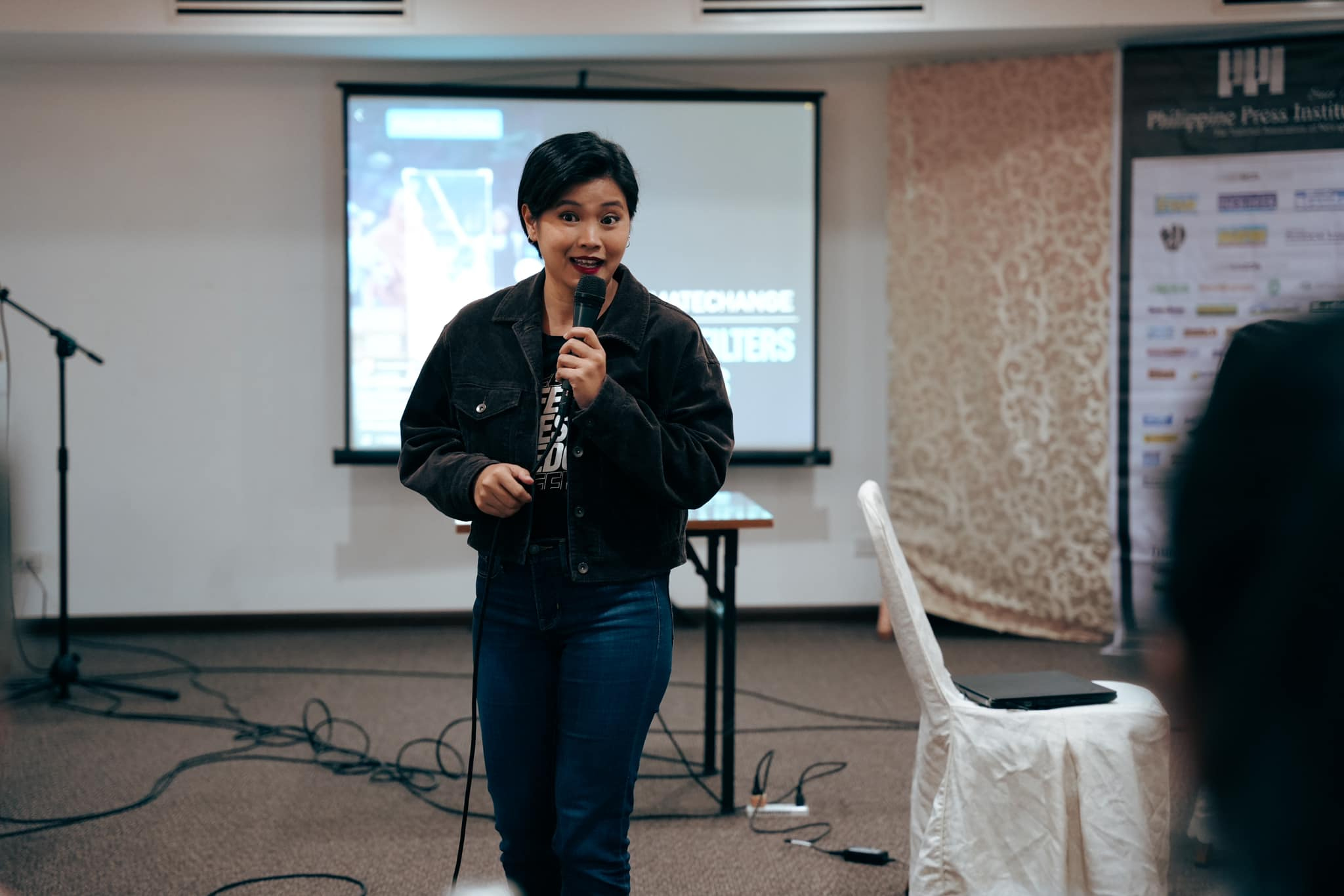
From some personal struggle when her home network ABS-CBN lost its franchise to broadcast, Ms. Manabat said that she went out of her comfort zone to try something new.
Tying the whole seminar together, Ms. Manabat’s message centered on being the proof that people have shifted to the use of social media, more particularly Tiktok, as their source of news. She related that during the pandemic, she utilized her personal Tiktok account to bring information across to a much wider audience among the masang Pilipino. Her videos were concise, factual, sometimes fun, and very relatable, which made them very popular. Despite the disruption to the way she delivers the news, she has remained a journalist while using her Tiktok account because she used it as a platform for speech. If more journalists will include delivering news through these short video clips, then the public will have access to more factual data from reliable news sources (a.k.a. professional journalists).
In this light, I am shamelessly plugging my relatively new Tiktok account: @MommySigrid
@mommysigrid
Drafting the Guidelines for Online Reporting
While the event tackled weighty topics that are timely and relevant to the current journalism landscape, the ultimate goal was to come up with a set of guidelines for online reporting that would cover ethics, security, and best newsroom practices in the present setup.
PPI executive director Ariel Sebellino said that there are no existing guidelines for online reporting at the moment, thus the need to develop one in order to guide veteran and even upcoming journalists about the current media practices.
The guideline was drafted based on existing facts derived from studies as well as the actual experiences of the journalists present and the newsrooms they represent. Furthermore, established bloggers and influencers from Bacolod, Iloilo, Aklan, and Capiz gave their valuable insights about social media practices from their years of experience navigating cyberspace.

While a separate technical working committee will finalize the guidelines under the supervision of the Philippine Press Institute, the group was able to come up with a comprehensive draft. Mr. Sebellino said that after guidelines are refined, they aim to propagate it to other regions and replicate the workshop to help more journalists navigate the virtual world.
The Purpose of the Guidelines for Online Reporting for Journalists
PPI, along with Bantala-UPV and the Iloilo Media-Citizen Council, came up with a seminar-workshop in order to address the drastically changing media landscape.
Along with the expansion of the news reporting horizon brought about by connectivity and social media, there are also increasing dangers to individual journalists, their families, as well as the physical and intellectual properties of the entire newsroom.
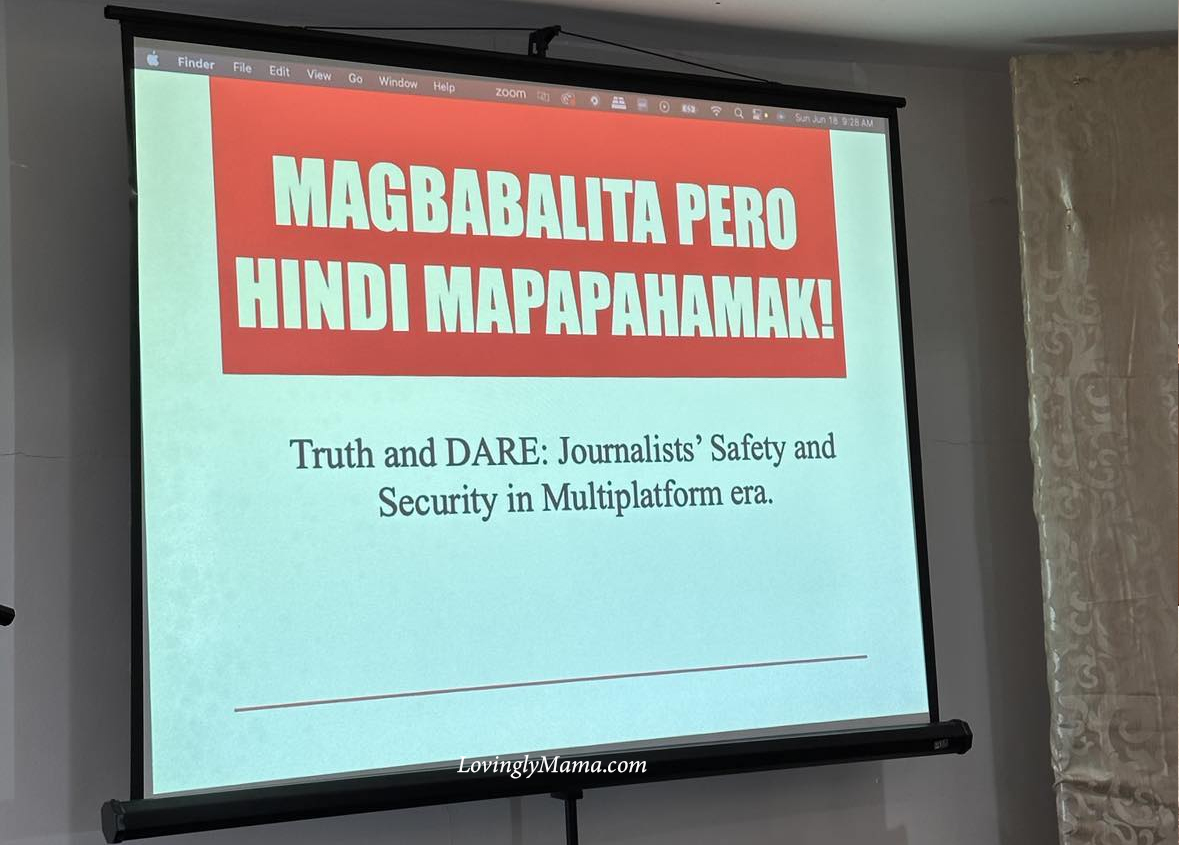
Thus, the guidelines were drafted to “help” Gen Z journalists, millennials and even digital natives navigate through the world wide web and its vast opportunities.
While the guidelines are by no means by-laws, it is the hope of the PPI that journalists will find a useful resource when faced with certain delicate situations in relation to their profession.
Mr. Angelo, also the PPI Trustee for Visayas, clarified that the proposed guidelines were not created to “impose” or regulate news reporting. Instead, these are for the consideration of media practitioners, bloggers, and other content creators for a healthier and safer online media landscape.
“They will have something to read when they are confronted with certain situations that might require some ethical and safety requirements,” Angelo said.
@mommysigrid ♬ original sound – MommySigrid
Author’s Insight: Seminars for Journalists on Social Media Use
While on the topic of social media use, I think it is best for news organizations to hold seminars for their employees regarding the ethical and safe use of social media. It can be per company or per media association.
The group should be informed of the basic use of social media, and etiquette, as well as the what-nots: what not to share, click, or respond to.

One real threat for media practitioners is getting their sensitive or confidential information leaked online or released to the wrong people. For example, media practitioners, especially those who operate on one server or network, should be wary about clicking unknown links from their messages or e-mails. These could be malware disguised as innocent links that can affect the operations of the entire news network.
These suspicious links could be anything from spam, scams, phishing, and the like. The worse is that it could be a hacker that wants to take over the entire network (including official social media accounts) and they can really bring the entire newsroom, including the news website, down.
Moreover, the personal social media accounts of journalists should not be taken lightly. Their words and opinion hold a lot of bearing and how they conduct themselves on social media, no matter the disclaimer, still affect the news organization. There should also be a guideline for media practitioners on how they handle themselves on social media.
Using Formal Language in Social Media Postings
While text speak and many other shortcuts are widely accepted in social media, journalists are encouraged to use formal language (i.e. correct spelling, grammar, punctuation, etc.) whether in English, Filipino, or local dialect.
If journalists’ social media posts through their personal or news outlet accounts are the last reading materials that young people would read, they would, at the very least, learn the correct structure of whatever language is used. Journalists in social media are the last frontiers in properly educating young people about the proper use of languages.
1 “The Rise of Online Advertising and its Impact on the Future of the Philippine Newspaper”, Jean Louisse Villanueva Concha and Jossa Kristine Cruz Soler, University of the Philippines-Diliman, April 2012
2 Digital News Report 2023, Reuters Institute for the Study of Journalism, United Kingdom, 21 June 2023
3 Share of adults who trust news media most of the time in selected countries worldwide as of February 2023, Amy Watson, Statista, 14 June 2023

